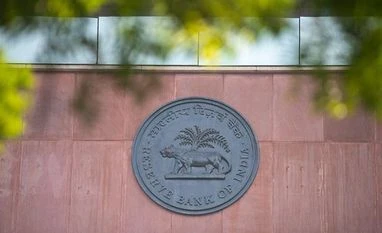Reserve Bank of India (RBI) deputy governor T Rabi Shankar on Thursday said the country and its banks must be prepared to meet challenges related to full capital account convertibility as foreign investors get full access to India’s debt market.
“The rate of change in capital convertibility will only increase …. With that comes the responsibility to ensure that such flows are managed effectively with the right combination of capital flow measures, macro-prudential measures and market intervention,” the deputy governor said in his keynote address at the fifth Foreign Exchange Dealers’ Association of India (FEDAI) annual day.
Under the fully accessible route (FAR), foreigners can have full access to some specified securities, 5-year, 10-year and 30-year to start with. The idea is to include the bonds in global indices where the foreign investors can invest in these bonds in full.
Over time, the entire G-sec (government security) issuance would be eligible for non-resident investment, according to Rabi Shankar.
“While experience of other countries suggest that non-residents are unlikely to hold a major portion of outstanding stock, substantial debt holdings might make India vulnerable to the risk of sudden reversals,” he said.
While index investors are unlikely to indulge in sudden reversals, “it may need to be considered, from a macroprudential perspective, whether FAR should be linked to index inclusion,” Rabi Shankar said.
Going forward the liberalised remittance scheme, under which an Indian can send up to $250,000 abroad each financial year, will have to be reviewed. The deputy governor said there could even be the need to review whether the limit can remain uniform or can be linked to some economic variable for individuals.
Currency convertibility will also bring in integration of financial markets. Over time, with increased convertibility, onshore and offshore markets for currencies and interest rates will be linked. The RBI has moved to do that in interest rate derivative segment, while the non-deliverable forwards (NDF) market for the rupee is also an effort in that direction.
After Indian banks entered into NDF space, the spread has narrowed, and foreigners will eventually end up holding rupee resources if the local bonds are available in the overseas markets.
“We need to now consider whether India is ready to allow such non-residents to hold rupee accounts. This will be an important early step in internationalization of the rupee and, therefore, needs to be carefully considered,” the deputy governor said, adding, with larger offshore transactions, there will be a need for a proper mechanism for information flow.
With greater integration, it is important that prices in the domestic market are transparent and advantageous to all. But individuals and small firms are denied good prices by banks. The deputy governor criticised the lenders for not giving enough importance to the retail platform for foreign exchange trading, since it is not in their best interest to do so.
“In this age of technology, it may not really be possible to shun superior technology for any length of time. There should be a debate on the use of the platform and banks should make an effort to give it a fair trial,” Rabi Shankar said.
Capital account convertibility will bring with it some associated risks and challenges, and market participants, particularly banks, “will have to prepare themselves to manage the business process changes and the global risks associated with capital convertibility,” Rabi Shankar said.
Watch Video
Unlock 30+ premium stories daily hand-picked by our editors, across devices on browser and app.
Pick your 5 favourite companies, get a daily email with all news updates on them.
Full access to our intuitive epaper - clip, save, share articles from any device; newspaper archives from 2006.
Preferential invites to Business Standard events.
Curated newsletters on markets, personal finance, policy & politics, start-ups, technology, and more.
)